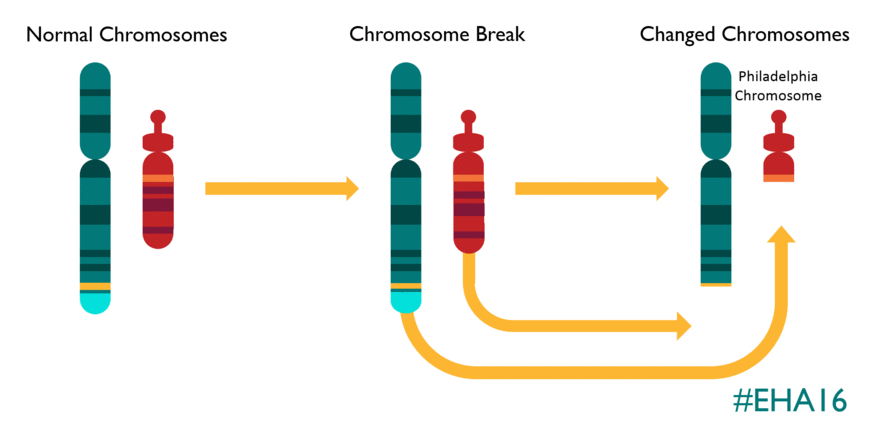A change in two chromosomes, 9 and 22, results in the Philadelphia chromosome, an abnormality seen in almost all CML patients.
Since my diagnosis, first and second generation tyrosine kinase inhibitors (TKIs) have been introduced. These treatments target the specific cause of the disease, and have been a great advancement in the treatment of Ph+ CML as well as in modern medicine. Novartis Oncology has been at the forefront of the transformation of CML from a life-threatening disease to a chronic condition when managed with appropriate treatment in most patients.
In addition to the medical and pharmaceutical communities continuing to research CML to learn more about the disease and also about future treatment options, patients are continuing their education. At the time of my diagnosis, I went to 3 different CML physicians, each of them told me something different about how I should treat the disease. Here I was ― a newly diagnosed patient with no knowledge and no experience, so I decided to learn about CML to help myself, but this evolved into a passion for helping other patients educate themselves. And that was how I became a patient advocate.
Patient advocates play an important role in learning about scientific advances and sharing those learnings with CML patients around the world. I go to medical meetings with fellow advocates and write reports about what I learn. The reports are translated into many languages so patients can learn for themselves about the latest scientific advances.
The CML patient community is eager to see innovation drive new treatment advancements for CML patients and many people I meet ask ‘what’s next in CML?’ I’m excited about companies, like Novartis Oncology, that continue to conduct research and development relating to the treatment of CML, including new treatments and the possibility of treatment-free remission. These potential advances are still under investigation, however I am eager to see what advancements may come from continued research in CML.
Today I’m proud to be a leader in CML. I think about when I was first diagnosed with CML and was told I may only have a few years to live. I am thankful every day that I have benefited from the scientific advances over the last nearly two decades of CML research. I look forward to continuing to witness the ongoing evolution of CML as investigators work to improve the lives of CML patients.




